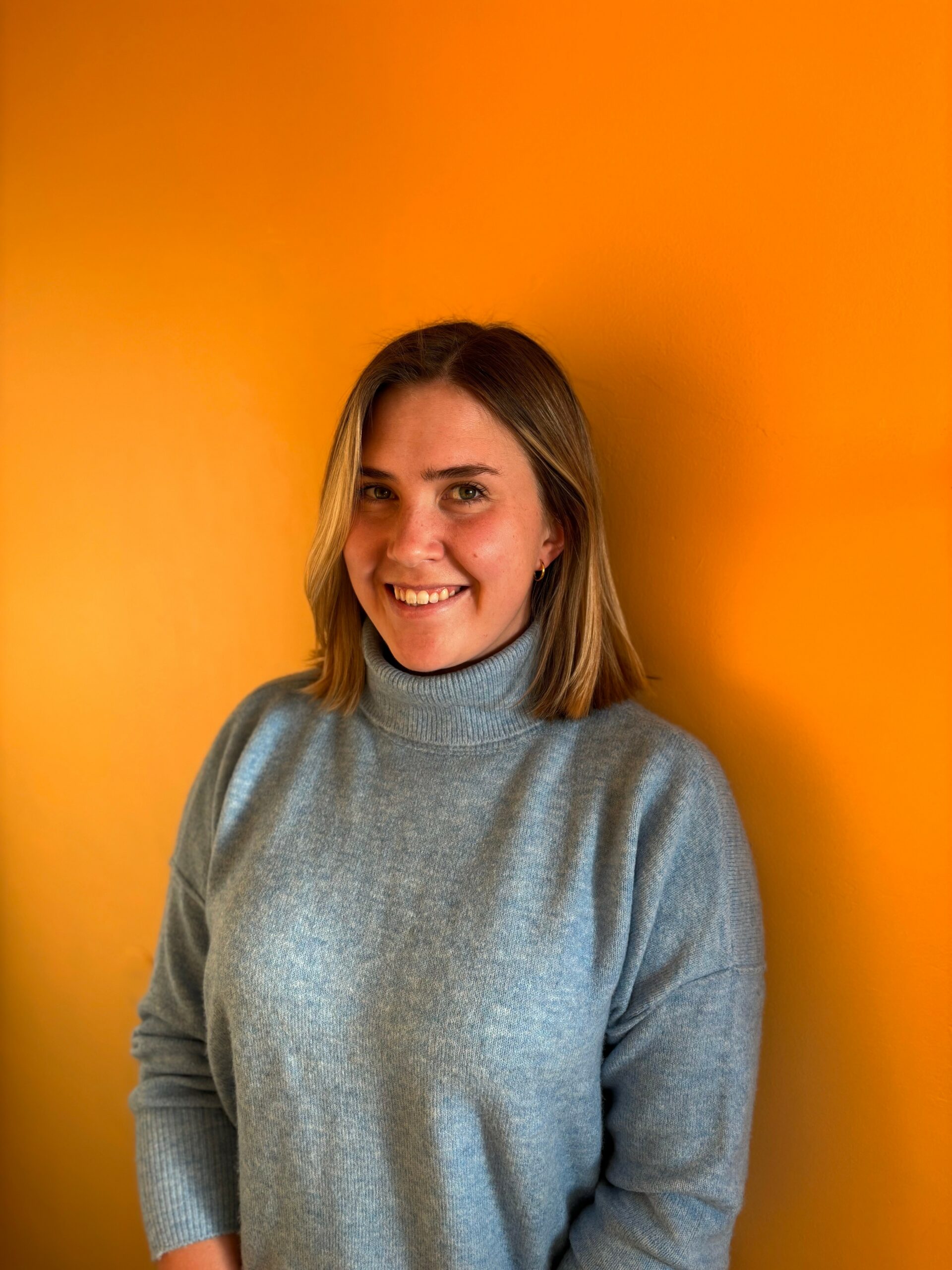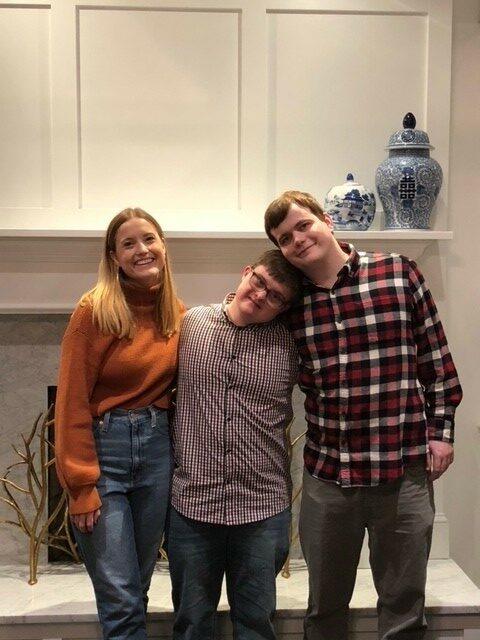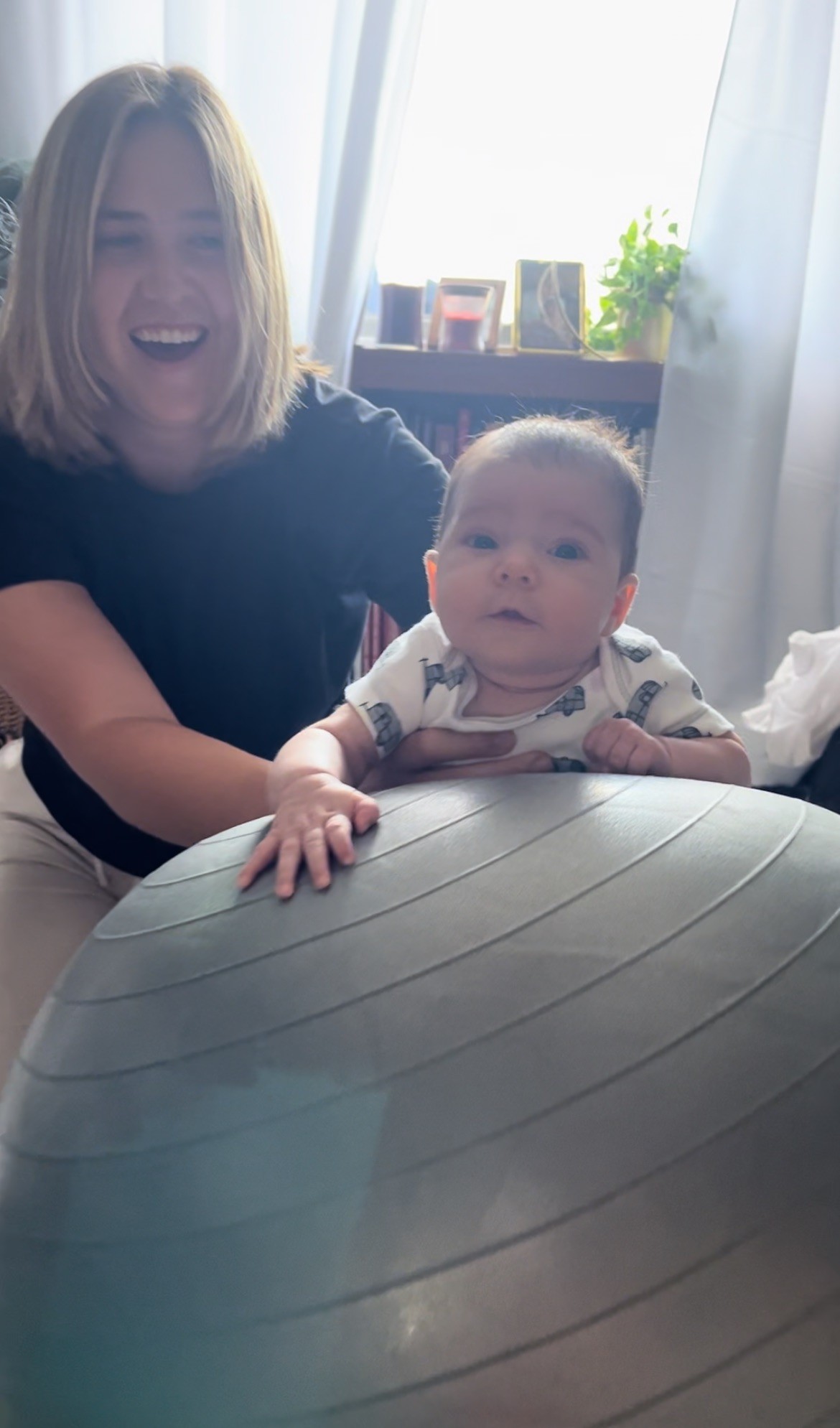We caught up with the brilliant and insightful Hanna Morris a few weeks ago and have shared our conversation below.
Hi Hanna, thank you so much for opening up with us about some important, but sometimes personal topics. One that really matters to us is overcoming Imposter Syndrome because we’ve seen how so many people are held back in life because of this and so we’d really appreciate hearing about how you overcame Imposter Syndrome.
Imposter syndrome is common for anyone starting out in a new position! In my field, it is sometimes easy to fall prey to this feeling because many do not know exactly what occupational therapy is, or understand the unique value occupational therapists bring to their clients. In graduate school, one of our first assignments was to deliver an “elevator pitch” to explain our role. I didn’t realize at the time that I would be giving that elevator pitch almost daily throughout my career! Occupational therapists work with people across all stages of life with an injury, illness, or disability that impacts their ability to participate in their daily routine. We use a holistic lens, including knowledge of anatomy, neurology, psychology, and activity analysis, to find out what matters to people and help them achieve it. We might, for example, help an older adult use the bathroom independently again after a stroke, problem solve with an office employee on how to type without irritating their carpal tunnel syndrome, or support an Autistic child to regulate their body in an overstimulating public classroom setting. I love the quote by Jessica Kensky, a survivor of the Boston Marathon bombing, which states, “Occupational therapy is where science, creativity and compassion collide.”
While working most of my career to support the pediatric Autistic population, I’ve battled my fair share of imposter syndrome. I’ve encountered people who doubt the value or purpose of OT, those who don’t understand it, and others who place unrealistic expectations on the outcome of OT services. I’ve become frustrated and discouraged when I can’t seem to help a child make progress on their therapy goals, or can’t find the right support or strategy to help them engage in a meaningful activity. I’ve also become frustrated with factors outside of my control, like lack of resources and support, or constraints from insurance or budgets.
One of my favorite ways to overcome imposter syndrome is to train my brain to focus on positive outcomes. I keep a journal, and often write down good things that happen in my workday. Because it is so easy to ruminate on something I could have done better, it helps me to call attention to rewarding and breakthrough moments, which in turn builds my confidence in my practice.
I’ve also found confidence in teamwork and collaboration. Shouldering goals and progress alone can be discouraging and isolating. Reaching out to team members, both inside and outside of my field, is always helpful. I’ve learned so much from my colleagues and peers, and often, connecting with one of them about an obstacle helps me see a much clearer solution. I’ve also been supported by wonderful mentors, like Erin Clarelli, the owner of SUNRISE therapies, who has helped me solve clinical issues, highlighted my strengths, and also inspired me as an entrepreneur.
Thanks for sharing that. So, before we get any further into our conversation, can you tell our readers a bit about yourself and what you’re working on?
I have spent most of my journey as an occupational therapist in pediatrics; mainly in school-based and outpatient settings. Although I’ve faced some challenges in my career, as discussed above, I’ve found the most success in working closely with children’s families. After all, who knows a child better than their parent or caregiver? Empowering parents to carry over strategies and support at home, and to engage with their children daily, is often much more impactful than an hour-long weekly OT session. Unfortunately, due to the nature of school based therapy, outpatient reimbursement, and lack of flexibility and time in a typical occupational therapy position, connection with parents and caregivers is often brief and infrequent.
My dear friend and fellow occupational therapist, Kristen Kowalski, and I have often discussed these obstacles since we were training in graduate school together. We have noticed that many families are overwhelmed upon first receiving a diagnosis of Autism. As they navigate potential services, assessments, and unforeseen challenges, families often get stuck on wait lists, and have limited time with professionals to ask questions. We have found that families are often overwhelmed when choosing which resources or services to pursue, and feel unsure where to turn, or how best to move forward on their journey.
To bridge this gap, Kristen and I decided to create Infinity OT Consulting. Informed by our years of occupational therapy experience with countless Autistic children and their families, our counseling offers families, caregivers, and Autistic individuals support and guidance, in real time, as challenges arise in their day-to-day lives. We help our clients access individualized resources, and provide a professional voice to advocate for their unique needs. By coming alongside families and individuals in this way, we aim to reduce the emotional workload of navigating the unexpected and unique path of receiving an Autism diagnosis. We do not offer occupational therapy services, but our consultation is rooted in the scope and experience of our practice as OTs as we provide a supportive listening ear, and an opportunity to talk through ideas and strategies.
The heart of our mission is to help Autistic individuals prepare for the lives they want to lead. We are neurodiversity affirming, and view Autism not as something to be “treated” or cured, but as a natural part of our world, and an integral piece of many individuals’ identities. Using a strengths-based approach, our goal is to empower Autistic individuals to thrive, while also working towards building a more accepting and inclusive society that embraces Autistic joy and satisfaction.
Looking back, what do you think were the three qualities, skills, or areas of knowledge that were most impactful in your journey? What advice do you have for folks who are early in their journey in terms of how they can best develop or improve on these?
Curiosity- I’ve found that approaching issues with a sense of curiosity, openness and eagerness to learn is very powerful. Using this approach allows me to be open to people’s perspectives and to see more clearly where they are coming from. In a field as broad and expansive as OT, it is impossible to know it all. I really enjoy diving into gathering more knowledge about unique cases or novel diagnoses. As a medical professional, it is imperative to continue to update your knowledge to stay up to date on best practices. I always remember what my dad told me- “Learning is one of life’s greatest pleasures.” Humility- As stated above, there is no way to know it all. I’ve found that people respect an honest “I’m not sure about that, let me do some research and get back to you!” rather than talking your way around an answer to a tough question. Working so closely with families, especially around sensitive subjects, is a privilege and honor; and it is important to respect the individuals, parents, and caregivers as essential members of the team. Parents and caregivers know their children best, and Autistic individuals are the true Autism experts!
Creativity- Occupational therapy is a creative field! That was one of the qualities that drew me to the field, but is also in turn one of the most challenging pieces of it. It can be frustrating at times when our role as OTs is not as “black and white” as some other professions. We look at things through a truly unique and holistic perspective, and often live more “outside of the box.” My advice to new practitioners is to embrace this: it is where the magic of OT shines through!
We’ve all got limited resources, time, energy, focus etc – so if you had to choose between going all in on your strengths or working on areas where you aren’t as strong, what would you choose?
Although there is certainly value in improving skills and weakspots, recently, I have focused more on embracing and utilizing my strengths. Using this frame of self-acceptance has improved my confidence and joy in my craft.
There is an amazing movement around celebrating neurodiversity. Embracing neurodiversity means treating differences such as Autism, ADHD, and others, as natural and valid neurotypes instead of pathologies to be fixed, and as a result, focusing on an individual’s strengths rather than their perceived deficits. This has caused a huge shift in my practice. Prioritizing neurotypical standards or norms above any differing path or perspective can be harmful to the well-being of neurodiverse children and adults. There are times where helping individuals learn or build skills is helpful and valuable. Using a strengths-based lens, however, helps me effectively meet my clients where they are, and support them to engage in school, at home, or in their community in ways that are meaningful to them. For example, instead of drilling a first grader with poor visual motor skills with handwriting worksheets to perfect his penmanship, I can help him use assistive technology like speech-to-text to get his valuable thoughts out on paper. I can work with a college student struggling to sit through lectures to advocate for her body’s needs, and use strategies like standing at her desk, drawing while listening, and taking movement breaks. Why must we ask everyone to fit in a box and follow the same path?
I’ve been inspired by the neurodiversity movement to have compassion and acceptance toward myself as well. Instead of forcing myself into the box of what a “perfect” therapist should be, I am using my strengths to fulfill the role in a way that is uniquely mine. I may not be the most structured or organized therapist in the world; but I thrive in meeting children where they are and building strong, engaged relationships. As an empathetic listener, I enjoy talking with parents, teachers, and caregivers and finding ways to give them support and encouragement. Celebrating and embracing strengths is empowering for everyone!
Contact Info:
- Instagram: infinity_ot
- Linkedin: www.linkedin.com/in/hanna-morris









